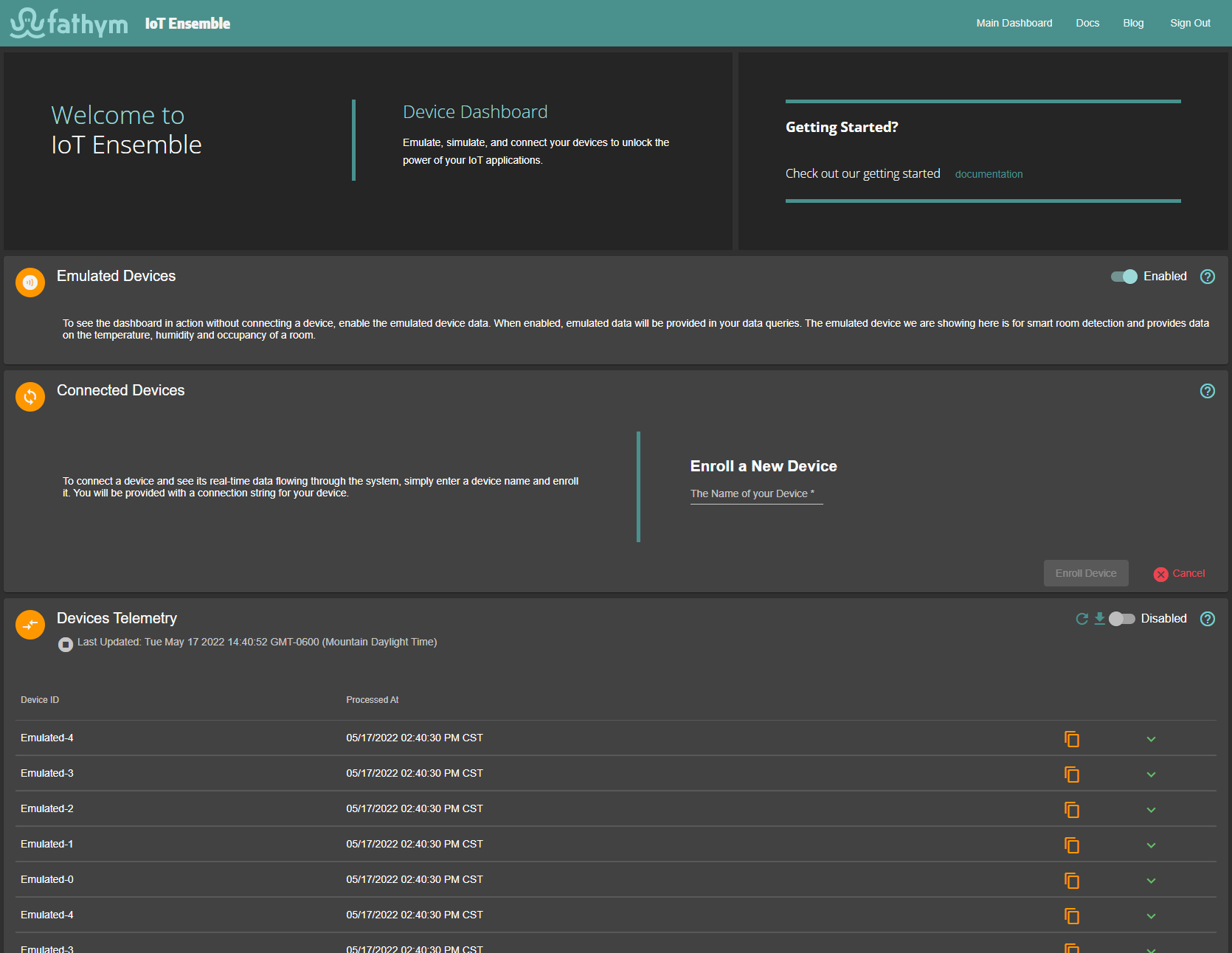CHIPS and Science Act leads to today’s groundbreaking of Intel’s $20B plant
September 9, 2022 by Rich Kurtzman, Brand Communications @ Fathym

Columbus, Ohio will soon be the home of a new $20 billion Intel plant focused on creating semiconductor chips, which have become crucial to everyday life in 2022.
Today, the President is in Ohio as part of the groundbreaking ceremony which is celebrating the resurgence of American Manufacturing, as we wrote about in May.
Simply, more chip manufacturing in America will help with some job creation, but overall, it will mean more automation and the increased need for reliable IoT software. More on that in a bit.
CHIPS and Science Act
The bipartisan CHIPS and Science Act was a win for the President, for American manufacturing and for national security as well.
Per the Associated Press, Joe Biden, “...called Intel’s planned 1,000-acre site a ‘field of dreams’ on which ‘America’s future will be built.’” in March.
The CHIPS and Science Act set aside $52.7 billion for research, development, manufacturing and workplace/worker development. Of that, $39 billion is dedicated to manufacturing incentives, $2 billion will be used for legacy automobile and defense systems chips, $13.2 billion goes to R&D while $500 million will be used to develop workers for these plants.
And the CHIPS and Science Act is already working.
Intel’s massive plant is enjoying a groundbreaking today. Meanwhile, Samsung plans to build a $17B chip plant in Texas and Micron is building their own $15B plant in Idaho, per the AP.
Semiconductor chips
Those chips which Intel and other companies are making help power industries from automobiles to home appliances, from cell phones to smart doorbell cameras and much more.
Car production has been impacted greatly by the 2021 and 2022 shortage of semiconductor chips; incredibly, an average car has 1,200 chips inside of it. That reliance on the chips meant a slowdown – and in some cases a temporary shutdown – of automobile manufacturing plants in 2021, which was one major factor in the short supply of cars and the sharp rise in prices for both new and used cars we’re currently seeing.
Cars are one huge user of semiconductors, but so are the manufacturing plants themselves.
Due to the chip shortage in 2021, the IoT industry was expected to see a less-than-expected 9% growth last year.
The Industrial Internet of Things world – or IIoT – relies heavily on programmable logic controllers, or PLCs, which are industrial computers that require chips. PLCs help automate manufacturing processes because they can do simple, and even at times complex operations. That automation is crucial for speed, accuracy and at times filling dangerous jobs to humans, too.
Automation in the IIoT world
According to a Forbes piece from Feb. 2021,
“Manufacturing jobs have seen eight consecutive months of growth, with December seeing more jobs added than lost, according to the U.S. Bureau of Labor Statistics. That’s worth noting since we’re in the middle of a pandemic and economic uncertainty is the norm.”
But(!) “Meanwhile, software has eliminated most of the higher-paying jobs that people could get without a college degree. More specifically, self-driving car technology coming to market could eliminate the largest remaining swath of these jobs.”
Automation is not a new concept, coined as a term way back in 1946 in the automotive industry, but automation is on the rise thanks to better and more reliable robots.
Per Forbes:
“The rise in automation available to U.S. manufacturers is going to provide a huge benefit. Why? Because robots can now build things cheaper than workers. They require a large upfront capital investment, but this cost is relatively the same everywhere in the world. This eliminates the strategic advantage of cheap labor held by international competitors. I predict that industries that have been dependent on cheap labor as a strategic advantage will see their businesses disrupted by robotic automation over the next 10 years, paving the way for a resurgence in U.S. manufacturing.”
A rise in automation means an increase in data
More robots mean more data. Why? Huge amounts of data are generated from sensors that track the performance of robots. And more data means an increased need for IoT software.
As more businesses go onshore and/or grow their manufacturing efforts, and as smart sensors become more ubiquitous, there will be a ramping up of data.
For many businesses, it will be a deluge of data!
In fact, some companies who we are working closely with have already become overwhelmed by the amount of data they’re bringing in.
Simply, more data means an increased need for being able to sift through that data efficiently.
According to an Inmarsat report, 86% of businesses aren’t using their IoT data effectively. More specifically, 46% of respondents said there was a delay between data collection and delivery, while another 33% cited a lack of IoT strategy completely.
The solution?
Conclusion: IoT Ensemble can help businesses with data
At Fathym, we present IoT Ensemble.
All your IoT data can now be accessed in one place. Or, if you’re a massive manufacturer, that data can be accessed in multiple places, with multiple dashboards and applications constructed for multiple clients.

What makes IoT Ensemble special?
Dashboards and applications which display your IoT data can be flashed up in mere minutes instead of days and weeks. This is incredible, data-on-demand power. Plus, it’s all displayed in real-time.
Fathym is your virtual development team that automates best practices for delivery and scale of IoT applications in the cloud. Process, store and access your data in minutes.
Reporting tools, like Power BI, help you visualize collected data in readable, understandable and intuitive graphs which can be customized to your preferences.
Those graphs are also interactive, allowing the viewer to easily decipher how certain data points relate to others.
IoT is all about data and information. Those in the automation game will need to know a lot about their new robot employees. Temperature, oil life, wear and tear on parts and more can be kept in check by using the right IoT solution. That data can also help the human managers find efficiency issues and make the most out of the opportunity.
Watch how to setup your own IoT Ensemble account and get running today here.
We encourage you to join Fathym today for free and dive into the world of IoT Ensemble.